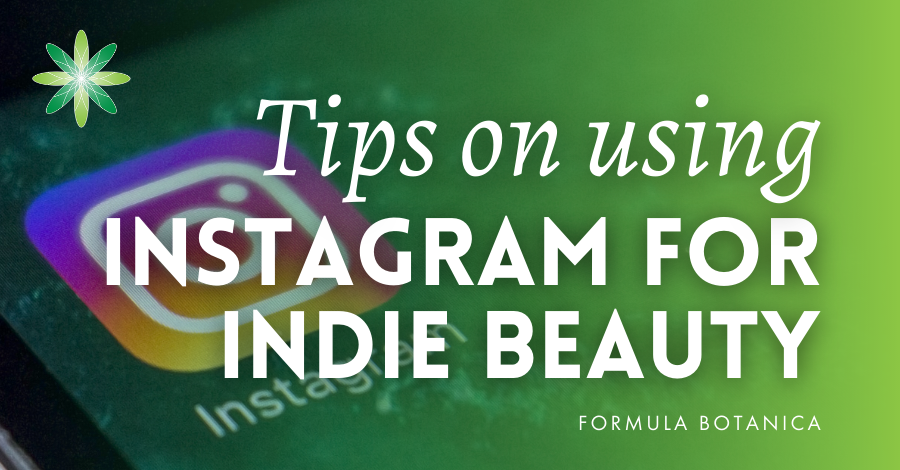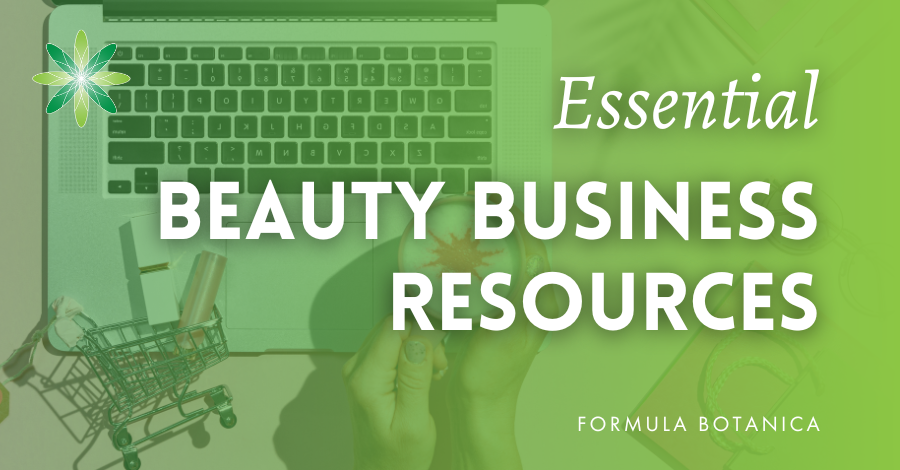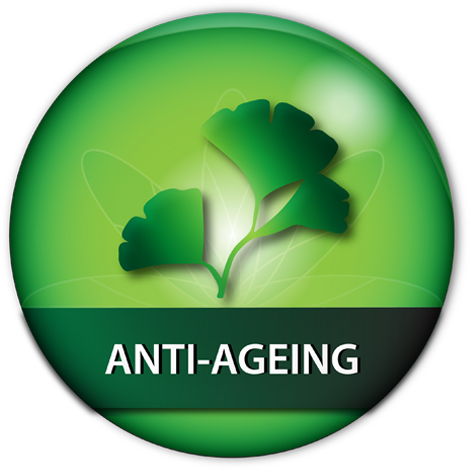Have you ever dreamed of being an organic skincare entrepreneur but been stuck on the starting blocks, wondering how others make it above the noise and build successful beauty brands and businesses? While there is no one-size-fits-all route to becoming an organic skincare entrepreneur, there are some things our student and graduates who have gone on to launch successful cosmetics’ businesses share in common; and that is a solid foundation of professional formulation skills coupled with sheer determination and a cleverly-defined niche. In this post, we share two graduate case studies to inspire you. We also offer some very practical advice on how to start a natural skin care business and the kind of areas you need to research and think about to write a skin care products’ business plan.
ByBi: how two friends joined forces as organic skincare entrepreneurs
Dominika Minarovic and Elsie Rutterford met in 2013 while working together in London. They became friends based on a shared love of clean living, tapping into the growing online organic skincare movement. The two friends started experimenting with DIY beauty, a popular method for following simple skincare recipes on websites such as Pinterest and Instagram. After lots of experimentation, Minarovic and Rutterford launched BYBI – an acronym for By Beauty Insiders – to sell their first range of beauty products. As Minarovic says: “We started the company as a rebellion against mainstream high street brands.” However, they knew that they wanted to make their formulations more sophisticated and create a clean beauty brand that would make waves. This was the turning point at which they realised that they needed to learn more so that they could take their brand up to the next level. To get the professional formulation skills that they needed, Minarovic and Rutterford took an online course in organic cosmetic formulation with us at Formula Botanica. With their new-found skills and knowledge, they felt confident in turning their passion into a business. A year later, the duo quit their old jobs and launched a new, high-performance skincare range. They’ve subsequently secured £150,000 in investment funding, as well as receiving a £50,000 start-up loan from Richard Branson and been mentioned in top 25 of the Who’s Who in Natural Beauty (2018) . Their brand is taking the green beauty world by storm and is now stocked in Harvey Nichols, ASOS, House of Fraser and other prestigious retailers. Minarovic and Rutterford have gone from strength to strength and as of late 2020, their brand – Bybi – has closed a further round of significant investment and is now present in the States in stores such as Target. From this case study, you may be asking yourself just how much does it cost to start a skin care line? Don’t think you need six-figures to start out, as it is perfectly possible – as in fact the Bybi founders did – to start at home with a small budget. Work out your goals and lifestyle needs and then think about what investment is needed to achieve those goals.
Mongolia’s first organic skincare entrepreneur
Khulan Davaadorj in Mongolia has a similar story. In 2014, she decided to leave a job in the energy sector to become a skincare entrepreneur. Davaadorj wanted to learn cosmetic formulation skills, so she enrolled with us on our diploma in organic skincare formulation. The following year, she launched Lhamour Skincare, Mongolia’s first certified organic beauty brand. When asked why she started her beauty brand, Davaadorj says “I did not want to work for a huge corporation nor the government anymore. I thought to myself, why can’t I use Mongolian grown herbs and plants for my own skin?”. Initially, she invested her time in designing formulations using local Mongolian ingredients such as yak’s milk, while building a customer base. Fast forward and Davaadorj now employs 35 local women and runs three stores in Mongolia with her flagship store in Ulaanbaatar’s major shopping mall. She is now growing her brand all over Asia as well as further afield in the Middle East, and in 2019 is set on entering the US, Canadian and European markets too. Expansion into such mature markets doesn’t phase Khulan at all. Davaadorj received the Best Young Entrepreneur award from the Confederation of Asia-Pacific Chambers of Commerce and Industry. Journalists now fly across to Asia to interview her. Mongolia has now well and truly woken up to organic skincare. With the global organic and natural beauty sector estimated to grow 9% a year to 2025, now is the right time to become an organic skincare entrepreneur @formulabotanica. #organicskincarecourse #naturalcosmetics #skincareentrepreneur Click To Tweet
The global boom in indie beauty brands
The global natural and organic cosmetics market was valued at US $11,500 million in 2018 and is predicated to reach US$ 23,600 million by the end of 2025, growing at a rate of 9.4% during 2019-2025. It offers enormous opportunities to entrepreneurs all around the world. This opportunity hasn’t gone unnoticed. In response, thousands of would-be entrepreneurs are busy making plans to change their lives by learning new skills in organic skincare formulation to start their own, independent, beauty brands. At Formula Botanica, we are proud to contribute to changing lives and careers by providing professional, accessible online training in organic cosmetics formulation. Our community now boasts over 6,500 students and graduates in 144 countries, demonstrating that organic cosmetic formulation is truly a global movement. What steps should you take if you want to become an organic skincare entrepreneur? Lorraine Dallmeier, Director of Formula Botanica, shares her top tips:
How to Start a Natural Skin Care Business
1. Learn organic formulation skills
Many independent beauty brands such as BYBI Beauty and Lhamour Skincare sell sophisticated organic formulations that can have beneficial effects on the skin and hair. If you want to compete, you need to learn organic formulation skills to develop products that really work. Formulating with botanical ingredients can be more challenging because they have shorter shelf lives, so you must invest to learn how to make formulations that are stable, safe and sellable.
2. Determine which niche you want to target
Natural is not a niche. Organic is not a niche. You need to determine which demographic you want to target and how you want to cater for them. If I had a dollar for every person who told me that they intend to target busy 30-year old women in the City, I would be very rich. There are many dozens of untapped skincare niches out there; find them, research them and target them. Another of our graduates, Emma Butt who launched her brand The Sunday Standard offers some great insights into how to find your niche in our Meet the Graduate interview with her. The Sunday Standard’s four-product range is focused on helping manage acne and blemish-prone skin and also celebrates colour in its products as a way to differentiate itself.
3. Develop a strong brand story
People buy from niche, independent brands because they connect with the story behind the brand. Examples of successful beauty brand stories include those that embrace local traditions, target specific lifestyles or showcase their founder. You need to craft your story so that it sells your brand for you. The story then becomes the golden thread which runs through everything your brand does, including your formulations, your designs or your marketing message.
4. Work with a branding expert
If you want your formulations to sell, you will need a strong brand. Your brand design cannot consist of a logo you’ve had designed on Fiverr or one which your friend made on her laptop. Ideally you should have a brand ethos that is reflected by your products, design and packaging; a cohesive approach that attracts potential customers to your lotions and cleansers. Listen to our podcast interview on 10 tips on branding your indie beauty business to understand how to define and build your brand story. You also need to have your labels professionally printed. I see many beauty brands skip this step, with disastrous consequences.
5. Choose your retail model
Although it may seem tempting to sell online only if you are a brand owner who shuns the limelight, this approach isn’t enough if you want your brand to be a success. Make a list of multiple retail options that allow you to undertake face-to-face selling, work with bricks & mortar as well as online retailers and connect with prospective customers through social media. Create a multi-pronged retail plan that allows you to get your creams and masks in front of the right customers in the right places.
6. Figure out your marketing strategy
One of the hardest parts of running a niche beauty brand is marketing your formulations. Create a sophisticated marketing strategy that allows you to connect with your customers. Be visible and be consistent in that visibility. As long as you are talking to (not talking at!) your visitors, followers and subscribers on a regular basis, you will start to find the right way of engaging new and existing customers. Much like any business, starting your own beauty brand requires time, dedication and passion. But with the market primed and waiting for natural, botanical alternatives, there has never been a better time to become an organic skincare entrepreneur.
If you’d like to learn more about how to become an organic skincare entrepreneur, join us by signing up for one of our organic cosmetic science formulation courses. Formula Botanica can help you on your way to starting the organic skincare or haircare business of your dreams. Try out our free sample class to see what it’s like to study with us.
FAQs
There is no one-cost-fits-all when it comes to starting a cosmetics business. Most indie beauty entrepreneurs start small, often working from home premises if their country laws allow this. The best way to determine how much you need both at start-up phase and to grow your skincare line is to write a business plan. Importantly, you need to decide on your personal goals as an entrepreneur and the lifestyle you wish for while working in and on your business. Some skincare businesses remain small and derive enough income from sales to local retailers and at markets. While other founders aim for expansion and into overseas markets. Deciding on your plans will determine the type of business you need to lay foundations for and how much financing you will need.
Business plan layouts vary but if you are aiming to write a business plan for a cosmetic business there are some key sections you need to think through and flesh out. These include but are not limited to: working out your mission and vision; defining your market positioning, product offer and pricing and the branding to support those; being clear about your current and future manufacturing methods; your retail and possibly also wholesale strategy; current sources of finance and raising finance; growth strategy; HR including hiring employees and working with partners; and marketing strategy. While this list seems daunting to the new founder, a business plan is worth writing in your first year in business. It is a document to guide you strategically and return to and not a waste of time nor something to file and forget.
Join us at Formula Botanica, where tens of thousands of students and followers take our free and paid online courses to learn how to formulate organic skincare and haircare for themselves or to sell and also how to set up a beauty brand and business.
FREE FOUNDATION COURSE
How to become an
Organic Skincare Formulator
FREE TRAINING
How to become an
Organic Skincare Entrepreneur
FREE TRAINING
How to become an
Organic Skincare Entrepreneur
Leave us a comment
Lorraine Dallmeier is a Biologist, Chartered Environmentalist and the CEO of Formula Botanica, the award-winning online organic cosmetic science school. Read more about Lorraine and the Formula Botanica Team.
























